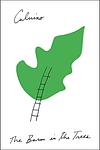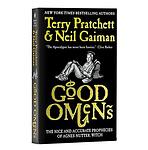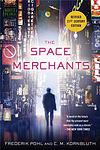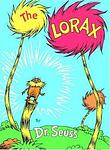The Greatest "Fiction, Satire, Speculative Fiction" Books Since 1950
Click to learn how this list is calculated.
This list represents a comprehensive and trusted collection of the greatest books. Developed through a specialized algorithm, it brings together 300 'best of' book lists to form a definitive guide to the world's most acclaimed books. For those interested in how these books are chosen, additional details can be found on the rankings page.
Genres
Satire is a genre of literature that uses humor, irony, and exaggeration to criticize and ridicule human vices, follies, and shortcomings. It is a form of social commentary that aims to expose the flaws and absurdities of society, politics, and culture. Satirical books often employ sarcasm, wit, and parody to challenge the status quo and provoke thought and reflection in readers. Satire can be both entertaining and thought-provoking, and it has been used throughout history as a powerful tool for social and political critique.
Speculative fiction is an umbrella genre encompassing narrative fiction with supernatural or futuristic elements. This includes genres such as science fiction, fantasy, horror, supernatural fiction, superhero fiction, utopian and dystopian fiction, apocalyptic and post-apocalyptic fiction, and alternate history. The unifying factor of speculative fiction is its departure from the narrative constraints of reality, exploring imaginative and often profound questions that challenge our understanding of the world and our place within it. These stories often delve into themes like the human condition, social commentary, and the exploration of philosophical and ethical dilemmas through the lens of the fantastical or the yet-to-be-possible. By pushing the boundaries of the known, speculative fiction invites readers to consider the myriad possibilities of existence and the potential consequences of our actions in worlds that are, at once, vastly different from and eerily similar to our own.
Countries
Date Range
Reading Statistics
Click the button below to see how many of these books you've read!
Download
If you're interested in downloading this list as a CSV file for use in a spreadsheet application, you can easily do so by clicking the button below. Please note that to ensure a manageable file size and faster download, the CSV will include details for only the first 500 books.
Download-
1. Slaughterhouse-Five by Kurt Vonnegut
The novel follows the life of Billy Pilgrim, a World War II veteran who has become "unstuck in time," experiencing his life events out of order. This includes his experiences as a prisoner of war in Dresden during the Allies' firebombing, his post-war life as a successful optometrist, his abduction by aliens from the planet Tralfamadore, and his eventual death. The book is a critique of war and a demonstration of the destructive nature of time, with a nonlinear narrative that reflects the chaos and unpredictability of life.
-
2. The Hitchhiker's Guide to the Galaxy by Douglas Adams
This comedic science fiction novel follows the intergalactic adventures of an unwitting human, Arthur Dent, who is rescued just before Earth's destruction by his friend Ford Prefect, a researcher for a galactic travel guide. Together, they hitch a ride on a stolen spaceship, encountering a range of bizarre characters, including a depressed robot and a two-headed ex-president of the galaxy. Through a series of satirical and absurd escapades, the book explores themes of existentialism, bureaucracy, and the absurdity of life, all while poking fun at the science fiction genre and offering witty commentary on the human condition.
-
3. A Clockwork Orange by Anthony Burgess
This novel follows the life of a violent young man named Alex, who is part of a youth subculture in a dystopian future England. Alex and his gang engage in a nightmarish spree of rape, assault, and robbery, until he is arrested and subjected to a psychological experiment by the government to "cure" him of his violent tendencies. The novel explores themes of free will, morality, and the nature of evil, while using a unique slang language invented by the author.
-
4. Gravity's Rainbow by Thomas Pynchon
Set during the end of World War II, the novel follows Tyrone Slothrop, a lieutenant in the U.S. Army, as he tries to uncover the truth behind a mysterious device, the "Schwarzgerät", that the Germans are using in their V-2 rockets. The narrative is complex and multi-layered, filled with a vast array of characters and subplots, all connected by various themes such as paranoia, technology, and the destructive nature of war. The book is known for its encyclopedic nature and its challenging, postmodernist style.
-
5. The Crying of Lot 49 by Thomas Pynchon
The novel follows the journey of a woman who stumbles upon a centuries-old conflict between two mail distribution companies when she is appointed the executor of her ex-lover's will. As she delves deeper into the mystery, she begins to question her own sanity and the reality of the conspiracy itself. The story explores themes of communication, interpretation, and the struggle to find meaning in a chaotic world.
-
6. The Third Policeman by Flann O'Brien
"The Third Policeman" is a darkly comedic and surreal novel about a nameless narrator who, after committing a murder to raise funds for his scholarly obsession with a bizarre pseudo-scientific theory, finds himself wandering in an eerie, nightmarish landscape. He encounters strange characters, including a pair of eccentric policemen who are obsessed with bicycles, and becomes embroiled in a series of increasingly absurd and ludicrous situations. The novel explores themes of existence, reality, and the nature of hell, with a twist ending that forces the reader to question everything they've read.
-
7. Cat's Cradle by Kurt Vonnegut
This novel is a satirical commentary on modern man and his madness, exploring issues of science, technology, and religion. The story revolves around a narrator who becomes involved with the children of a deceased scientist, who had developed a substance capable of freezing water at room temperature. This substance, if misused, has the potential to end all life on earth. The novel is filled with strange and twisted characters, and culminates in a cataclysmic event, highlighting the dangers of uncontrolled technological advancement.
-
8. The Colour of Magic by Terry Pratchett
This book introduces readers to a flat, disc-shaped world balanced on the back of four elephants who stand on a giant turtle. The story follows an inept and cowardly wizard named Rincewind who is tasked with guiding a naive tourist through this chaotic and fantastical world filled with dragons, trolls, and magic. The narrative is a satirical take on fantasy genre clichés, with humorous and witty commentary throughout.
-
9. The Sirens of Titan by Kurt Vonnegut
The novel explores the life of Malachi Constant, the richest man in a future America, who has gained his wealth due to his father's foresight in investing in companies that benefit from the space race. The narrative takes him from Earth to Mars, Mercury, back to Earth, and finally to one of Saturn's moons, Titan. Along the way, he experiences a series of bizarre, humorous, and tragic events that reveal the senselessness of war and the emptiness of a life devoid of love. The novel offers a biting critique of capitalism, militarism, and religion, while also exploring themes of free will, determinism, and the search for meaning.
-
10. The Baron in the Trees by Italo Calvino
"The Baron in the Trees" tells the story of a young Italian nobleman who, in a fit of rebellion, climbs a tree and vows never to touch the ground again. He spends the rest of his life living in the treetops, observing the world from above, and engaging in adventures with bandits, revolutionaries, and lovers. Despite his self-imposed exile, he becomes a symbol of freedom and individuality, ultimately influencing the course of European history.
-
11. Good Omens by Terry Pratchett, Neil Gaiman
"Good Omens" is a humorous take on the biblical Apocalypse, following an angel and a demon who have grown fond of Earth and its inhabitants, and are not too keen on the impending end of the world. As they try to locate the misplaced Antichrist and prevent the Four Horsemen from bringing about Armageddon, they encounter an array of quirky characters, including witch-hunters, modern-day witches, and the Four Horsemen themselves. The novel combines comedy, fantasy, and philosophical themes, offering a satirical critique of religious prophecy and human nature.
-
12. Haroun and the Sea of Stories by Salman Rushdie
The book is a fantastical children's novel that explores the importance of storytelling. It follows the journey of a young boy named Haroun who sets out on a magical adventure to restore his father's ability to tell stories. Along the way, he encounters a vast array of colorful characters and strange lands, including a Sea of Stories. The narrative addresses themes of censorship, the power of storytelling, and the struggle between light and darkness.
-
13. Dirk Gently's Holistic Detective Agency by Douglas Adams
This humorous science fiction novel follows the eccentric detective Dirk Gently, who operates based on the fundamental interconnectedness of all things. His cases involve time travel, ghosts, and an Electric Monk, a labor-saving device that believes things for you. Dirk's current investigation revolves around the disappearance of a cat, a multimillionaire, and a horse in a bathroom, all seemingly unrelated events, but in Dirk's holistic world, everything is connected.
-
14. The Female Man by Joanna Russ
"The Female Man" is a thought-provoking science fiction novel that explores the lives of four women from different dimensions and time periods. As they navigate their respective worlds, the women confront gender inequality, societal expectations, and the limitations imposed on them by a patriarchal society. Through their encounters and conversations, the novel challenges traditional gender roles and offers a powerful critique of sexism and discrimination.
-
15. The Space Merchants by Frederik Pohl, C.M. Kornbluth
"The Space Merchants" is a dystopian science fiction novel set in a future where corporations have taken over the world and consumerism is rampant. The story follows a talented advertising executive who is tasked with creating an ad campaign to entice people to colonize Venus. As he delves deeper into his work, he uncovers the dark secrets behind the corporate-controlled society and becomes determined to fight against the oppressive system.
-
16. Grendel by John Gardner
"Grendel" is a thought-provoking novel that retells the epic Beowulf from the perspective of the monster, Grendel. The book explores themes of existentialism, morality, and the nature of humanity as Grendel navigates his lonely existence and interacts with various characters, including the heroic Beowulf. Through his introspective musings, Grendel challenges traditional notions of good and evil, ultimately questioning the purpose and meaning of life.
-
17. The Lorax by Dr. Seuss
In a world where greed and destruction prevail, a curious young boy seeks answers about the disappearance of trees and the strange creature called the Lorax. Through an enchanting tale, Dr. Seuss sheds light on the importance of environmental conservation and the devastating consequences of human exploitation, inspiring readers to take responsibility for protecting the Earth's natural resources.
-
18. Stand on Zanzibar by John Brunner
The novel is a dystopian vision of the year 2010, where the world grapples with overpopulation, ecological disasters, and widespread social unrest. It follows a multitude of characters, including a high-level executive and a data analyst, as they navigate a society dominated by multinational corporations and a supercomputer that predicts social trends. The narrative is fragmented, employing a unique style that interweaves different types of texts to reflect the chaotic and information-saturated world it depicts. Themes of eugenics, media saturation, and corporate power are explored in a world that is at once technologically advanced and socially fragmented.
-
19. Small Gods by Terry Pratchett
In a satirical fantasy world, a once-powerful god finds himself nearly forgotten, his power diminished to almost nothing as he's left with a single believer, a novice monk. This unlikely duo embarks on a journey to confront the corrupt religious institution that has lost sight of true faith, challenging dogma and hypocrisy. Along the way, they encounter a host of quirky characters and navigate philosophical quandaries, ultimately seeking to restore genuine belief and the god's rightful place in the hearts of the people. The narrative cleverly explores themes of religion, belief, and the nature of power through a humorous and thought-provoking lens.
-
20. The Futurological Congress by Stanislaw Lem
In a dystopian future, the protagonist attends a scientific conference where he is exposed to a new hallucinogenic drug that transports him to a surreal and chaotic world. As he navigates through this bizarre reality, he becomes entangled in a conspiracy involving mind-altering technology, political manipulation, and the struggle for power. This satirical novel explores themes of reality, identity, and the dangers of unchecked technological advancements.
-
21. The Glass Bees by Ernst Jünger
"The Glass Bees" is a novel set in a future dystopian society, where technology has advanced to the point where robotic bees are being used for honey production. The story follows a former cavalryman who, desperate for employment, accepts a job from a powerful technocrat to test out these mechanical bees. As the protagonist gets more involved in the technocrat's world, he begins to question the morality and implications of such advancements, leading to a deep exploration of the intersection between technology and nature, and the potential consequences of unchecked technological progress.
-
22. Night Watch by Terry Pratchett
"Night Watch" is a satirical fantasy novel that follows the story of Sam Vimes, a city watch commander who is transported back in time. He must navigate the complexities of the past, assume the identity of his old mentor, and prevent a violent revolution, all while trying to find a way back to his own time. The book is filled with humor, social commentary, and a detailed fantasy world.
-
23. The Truth by Terry Pratchett
In this satirical fantasy novel, the story revolves around the accidental establishment of the city's first newspaper by a young entrepreneur and his talking dog. As the newspaper begins to uncover and report the truth, it finds itself entangled in a plot involving political intrigue, murder, and the machinations of the city's elite. The protagonist must navigate the treacherous waters of news and information, dealing with the moral dilemmas of journalism and the power of the written word, all while the very fabric of the city's society is threatened by the stories his paper brings to light. The novel humorously explores themes of media power, truth, and the responsibility of those who control the flow of information.
-
24. Camp Concentration by Thomas M. Disch
In this speculative fiction novel, the story unfolds in a dystopian future where the U.S. government, engaged in an unwinnable war, turns to unethical experiments to enhance human intelligence. Prisoners are injected with a syphilis strain designed to boost their intellect while shortening their lifespan. The narrative, presented through the journal entries of a conscientious objector who becomes an inmate and an observer of the program, explores the moral and philosophical implications of sacrificing humanity for the sake of intellectual advancement. As the experiment progresses, the heightened intelligence of the inmates leads to unforeseen consequences, challenging the very nature of power, knowledge, and the human condition.
-
25. Hogfather by Terry Pratchett
In a fantastical satire of holiday traditions, the very existence of the Discworld's version of Santa Claus, known as the Hogfather, is threatened when a sinister plot is hatched to eliminate him. As belief in the Hogfather wanes, the personification of Death steps in to fill his boots, delivering presents to the children of the Discworld in an attempt to keep the spirit of the holiday alive. Meanwhile, Death's granddaughter, a plucky and resourceful young woman, works to unravel the conspiracy and restore the natural order. The story humorously explores themes of belief, tradition, and the nature of reality through a quirky and whimsical narrative that is both entertaining and thought-provoking.
Reading Statistics
Click the button below to see how many of these books you've read!
Download
If you're interested in downloading this list as a CSV file for use in a spreadsheet application, you can easily do so by clicking the button below. Please note that to ensure a manageable file size and faster download, the CSV will include details for only the first 500 books.
Download























